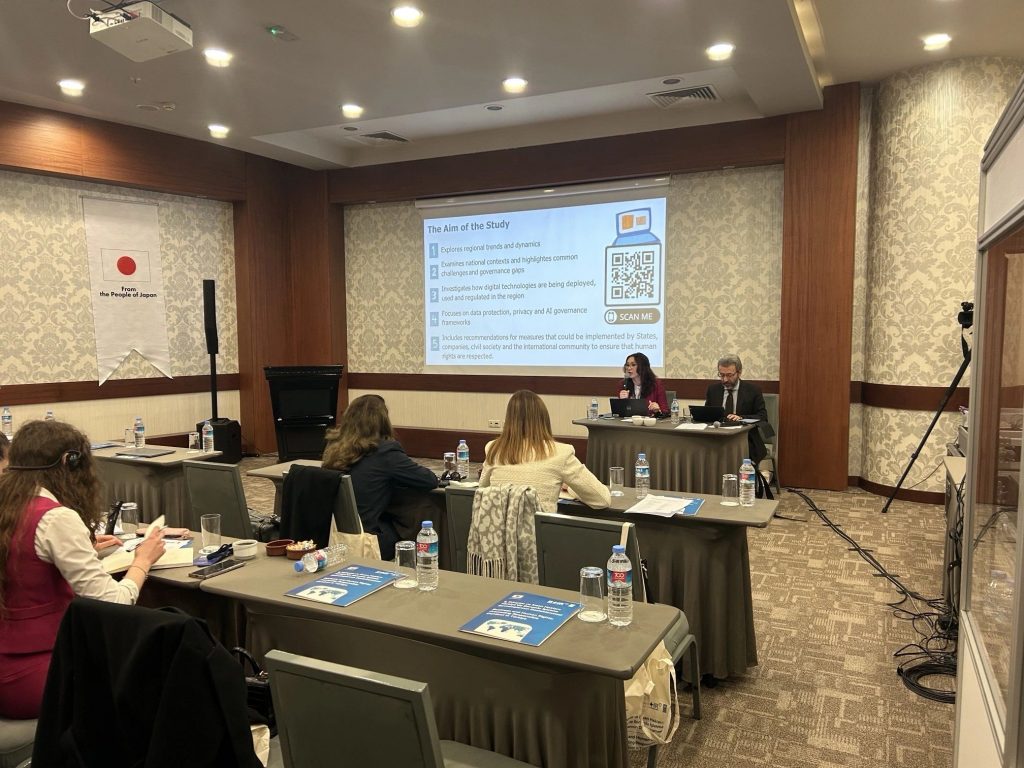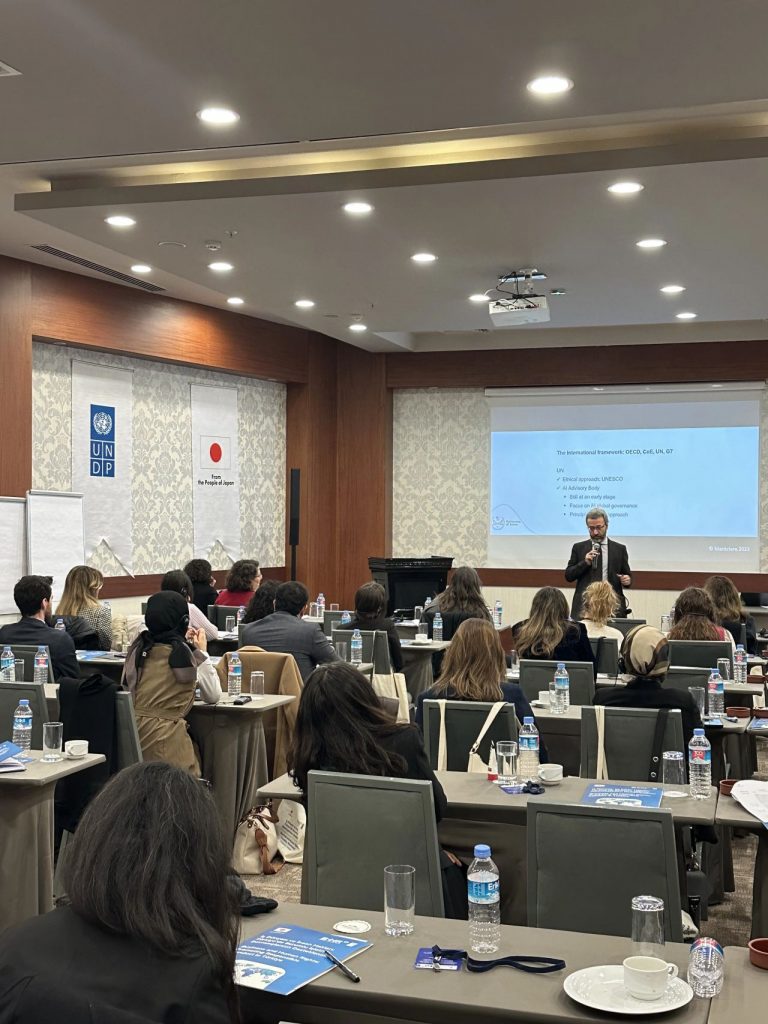On the same day that the Permanent Representatives of the governments of the EU Member States agreed on the AI Act, which requires a fundamental rights impact assessment, Prof. Mantelero concluded a two-day UNDP training workshop in Ankara on Human Rights Impact Assessment (HRIA) in AI. While AI is moving fast, human rights organisations are moving from principles to concrete implementation.
Capacity building for HRIA in AI development was initiated by the UNDP and the Government of Japan (B+HR Project) with the aim of promoting human rights in business and implementing the UN Guiding Principles on Business and Human Rights (UNGPs).
Experts from the Human Rights and Equality Institution of Türkiye explored the challenges of AI and how to pave the way for effective human rights protection. Based on the broad perspective provided by the UNGPs, it is possible to go beyond the limitations that still affect the regulatory debate on AI, and to develop appropriate methodologies for responsible business actors and public bodies willing to design human rights-oriented AI.
An introductory panel, with Ainura Bekkoenova and Sophie Hale (ENNHRI), and Prof. Mantelero, discussed the main challenges for the development of AI and its use by private and public actors, the role of the National Human Rights Institutions, the focus on human rights at the regional level, and the global debate on AI.
Following this initial overview, Prof. Mantelero conducted a capacity building exercise on the implementation of HRIA in AI with the experts participating in the workshop. He explored various existing models, considering process-based, awareness-raising, and quantification approaches, and their core elements.
While it is important to combine the relevant contributions of each of these approaches, it is equally important to identify methodological issues in model design. Through an exercise based on real case scenarios (e.g., AI-assisted patient triage, use of AI in border control, predictive models for social aid), participants used risk matrices to integrate various relevant risk parameters, assessed potential human rights violations and identified appropriate mitigation measures.
While HRIA in the field of AI is still in its infancy, there is an urgent need to push the boundaries of research in this domain. It is therefore crucial to equip both public and private entities involved in AI development with the necessary skills.

